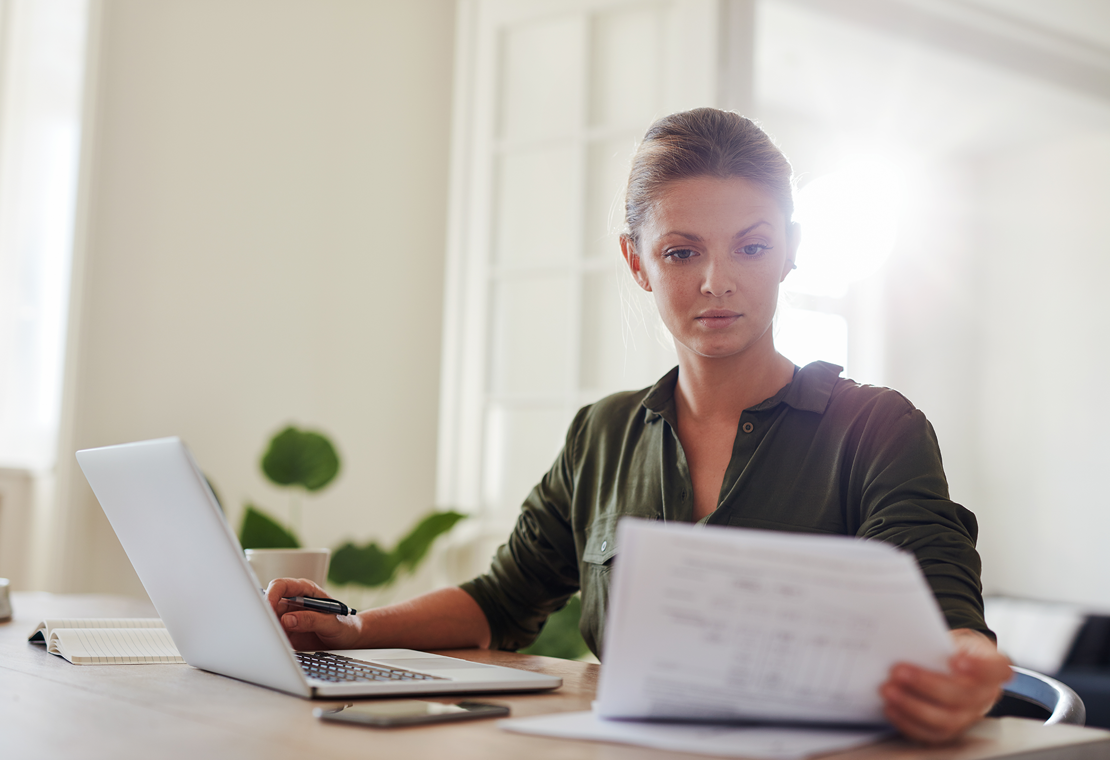How to budget effectively
Do you feel that your money runs out as soon as you get paid? A budget helps you plan your finances and keep better track of spending so your money lasts longer.
There are many benefits to creating a budget. First of all, you get a better overview of your finances. You see what you're spending the money on and might realise where you’re wasting money unnecessarily. Setting a realistic budget makes it much easier to make good financial choices.
A good budget can help you:
- reach a long-term savings goal, such as buying a new car, new home or dream holiday
- avoid falling behind on bills and building up expensive debt
- have a more comfortable everyday life.
Where should I start?
Fortunately, creating a budget is not as difficult as you might think. A budget is simply an overview of your income and expenses. The first thing you need to do is find out how much money you earn and how much money you spend per month.
Step 1: Income
Start with the easiest – the money you have coming in every month. Usually this is your salary. Remember to also include any other income, such as rental income, child support or other benefits.
Step 2: Fixed expenses
Fixed expenses are those that come out regularly, such as rent or other housing expenses, electricity/water/heat, insurance, mobile, internet, transport, loan payments and subscriptions.
Be aware that the amounts can change over time, for example if the rate changes or your heating bill rises in the winter.
Fixed expenses are not necessarily invoiced every month. A good tip is to split the amount per month in your budget overview to ensure that costs are spread evenly.
TIP: How to reduce your fixed expenses
To keep the fixed costs as low as possible, compare prices on, for example, insurance and mobile subscriptions. Maybe you can get the same thing cheaper from another provider.
Step 3: Variable expenses
Variable expenses are things you know you will spend money on, but where you don't know exactly how much it will cost. This can be expenses such as; food, clothes, entertainment, travel and leisure.
What amounts should you set in the budget? It can be difficult to determine amounts for variable expenses. Via your online bank, you can check the account overview and get an idea of how much you usually spend on these items. This is a good starting point, and perhaps also an opportunity to adjust your consumption.
Contingencies
Your budget should also include an amount for unforeseen expenses. Then you have a buffer if your fridge breaks down, your car suddenly stops working or you get a big vet bill.
TIP: How to reduce your variable expenses
Find out where your money is really going. For many, it is the small expenses that add up to surprisingly large amounts. For example, buying two coffees a week quickly adds up.
Step 4: Prioritise savings
Once you have an overview of your income and expenses, the next step is to look at how much you have left to save.
If you find it difficult to save, it is a good idea to create a separate savings account and set up an automatic transfer every month.
Step 5: Check the budget
The secret to a good budget is to check it every month. Look to see how much you have actually spent and become more aware of what you spend money on. Think about what you want to change and adjust your budget continuously. If there are changes in your life, it is especially important to adjust your budget and your spending - it could be that you get divorced, have children, lose your job, or experience something else that will change your finances.
Tools that can help you create a budget
There are many templates and tools that make it easier to create a budget.
Use online banking
Many banks enable you to set up your budget directly via online banking.
Try an app
By using an app, you always have the full overview at your fingertips.
Use Excel or Google Sheets
Google Sheets is free and easy to share with others, for example.

